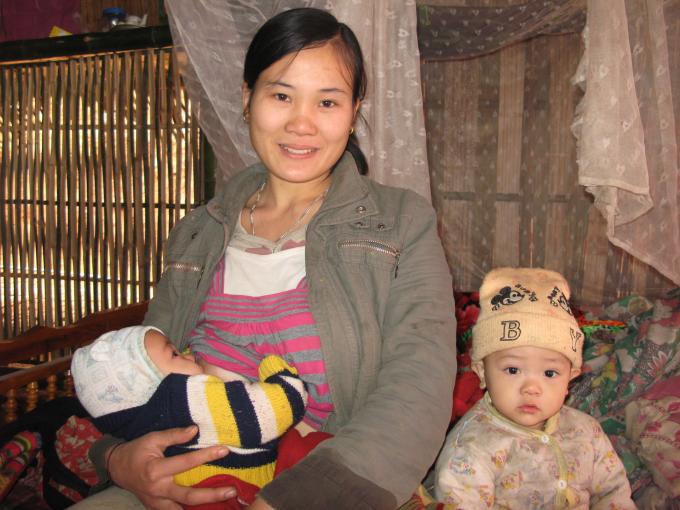Increasing food diversity in rural Vietnam
Duan weighed a mere 2.5kg when he was born. He was in poor health, often suffering from respiratory infections and came down with pneumonia from time to time. Duan’s mother, Hue, gave him breast milk and other liquids for six months before transitioning him to soft foods. He weighed just six kilograms at seven months.
As such, Hue was invited to join a nutrition programme set up by Save the Children in her village, where mothers learnt to prepare nutritious meals. As part of the programme, Hue learnt to cook a meal of porridge with four food groups for her children. Mothers practice these meal preparations together in order to help them better remember those lessons and exchange cooking tips with each other.
Duan’s family is one of many poor households in village number one of Dong Quan commune, living on a monthly income of less than US$19 per month. The family’s main source of income comes from their rice and cassava fields, where they plant on 3 “sao” of rice and 5 “sao” of cassava. (1 sao = 360m2)
After undergoing the programme, Hue learnt to create greater diversity her family’s diet and ways to prepare nutritious meals for them. The family reserved a plot of land to grow fresh vegetables all year round for their own consumption. They rear a few hens so the children can have eggs and her husband fishes at the small pond near their home a few times a week so they can put fish on the dining table. In addition, Hue also catches crabs in the rice fields to enrich Duan’s meals. Eleven months later, Duan weighed nine kilograms and was no longer malnourished.
During her second pregnancy, Hue was advised by nutrition project officers trained by Save the Children in the village to take iron tablets, receive vaccination to prevent tetanus, plan a good diet and participate in some physical activities. As a result, her second child weighed 2.8 kg at birth. She did not discard the colostrum and breastfed immediately after birth. With help and support from her husband and his family, her second son was exclusively breastfed for the first six months, despite the challenges of having to go to work during the day.
“The biggest benefit that this project brings to my family is to help my first son, Duan, escape from malnutrition and help my second son, Huan, to avoid malnourishment,” Hue said. “My family is very thankful for the support of the project.”
 Vietnam
Vietnam 